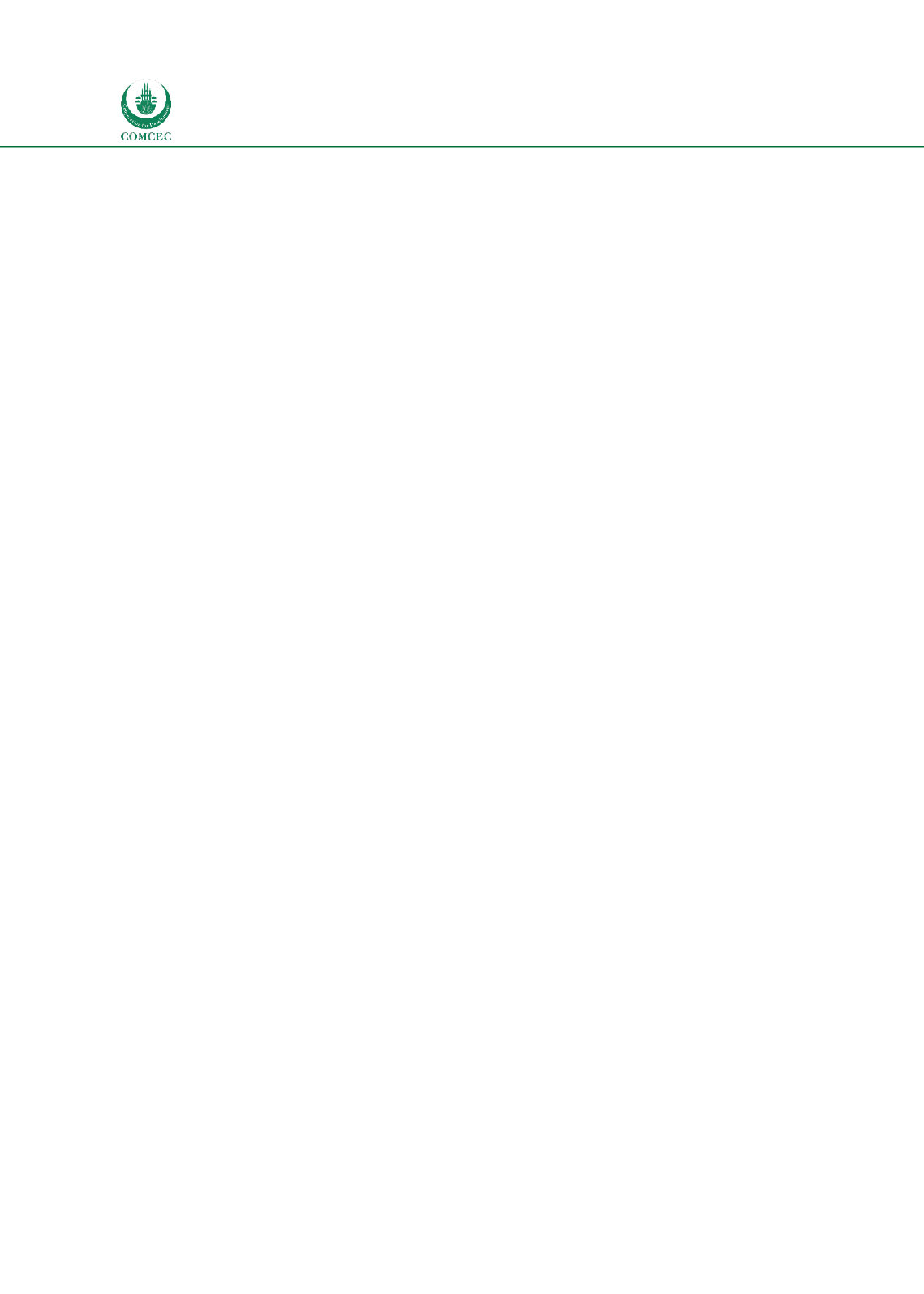

National and Global Islamic Financial Architecture:
Problems and Possible Solutions for the OIC Member Countries
92
4.5. Nigeria
The Islamic finance sub-sector comprising Islamic banks,
takaful
companies and the Islamic
capital market is relatively new in Nigeria compared to their conventional finance counterpart.
Habib Bank was the first conventional bank in Nigeria to be granted licenses to operate an
Islamic banking window in 1992 following the amendment of Banks and Other Financial
Institutions Act (BOFIA) in 1991 that recognized the profit and loss sharing banking model.
While the window commenced operations in 1999, it did not survive as Habib Bank as it
transformed into Bank PHB after a merger with Platinum Bank in 2005 and was liquidated in
2011.
Islamic finance again got a boost in 2011 when the Central Bank of Nigeria (CBN) issued the
guidelines for the regulations and supervision of institutions offering non-interest financial
services in Nigeria. Following the release of the guidelines, a fully-fledged Islamic Bank (Jaiz
Bank), Stanbic IBTC and Sterling Bank Islamic Banking Windows as well as Tijara microfinance
Islamic bank were licensed and commenced operations between 2011 and 2014. These four
(4) institutions constitute the Islamic banking sub-sector.
The size of the Islamic banking sub-sector remained small in the entire banking industry. The
total assets, deposits and financing (credit) of the sub-sector according to the CBN’s FinA
(Financial Analysis) which stood at USD276 million, USD202 million and USD129 million as of
December 2015 accounted for only 0.20%, 0.23% and 0.19% respectively of the banking
industry. Even though the size is very small, the growth rate of the three indicators
outperformed those of the conventional financial institutions as total assets, deposits and
financing grew by 23.74%, 44.30% and 18.04% against the values of 2.78%, -2.96% and 5.72%
recorded for conventional financial institutions in 2015, respectively.
The
takaful
segment of Islamic finance in Nigeria is not as vibrant as the Islamic Banking
segment as
takaful
is being offered only as a product. As of December 2015, there were three
conventional insurance companies offering
takaful
. A significant milestone in
takaful
was,
however, recorded when the National Insurance Commission (NAICOM) issued the Guidelines
for
Takaful-Insurance
in 2013.
Similarly, the Nigerian Islamic capital market is comprised of one Islamic fund manager
managing the Lotus Capital Halal Fund and three (3) conventional fund managers managing
four Islamic/Ethical Funds windows (Stanbic IBTC- Iman Fund, Stanbic IBTC Ethical Funds,
Zenith Ethical Funds, and ARM Ethical Funds) and one ETF (Lotus Halal ETF). Furthermore, the
Osun State Government issued a
sukuk
and the Nigeria Stock Exchange (NSE)-Lotus Islamic
Index was created in 2009 and launched in 2012. It was the first index to track the
performance of 15
Shariah
compliant equities listed on the NSE. According to data obtained
from the Securities and Exchange Commission (SEC), the total Net Asset Value (NAV) of the five
Islamic/Ethical funds was USD24 million at the end of 2015, representing only 1.8% of USD1.3
billion for the entire mutual funds market.
















